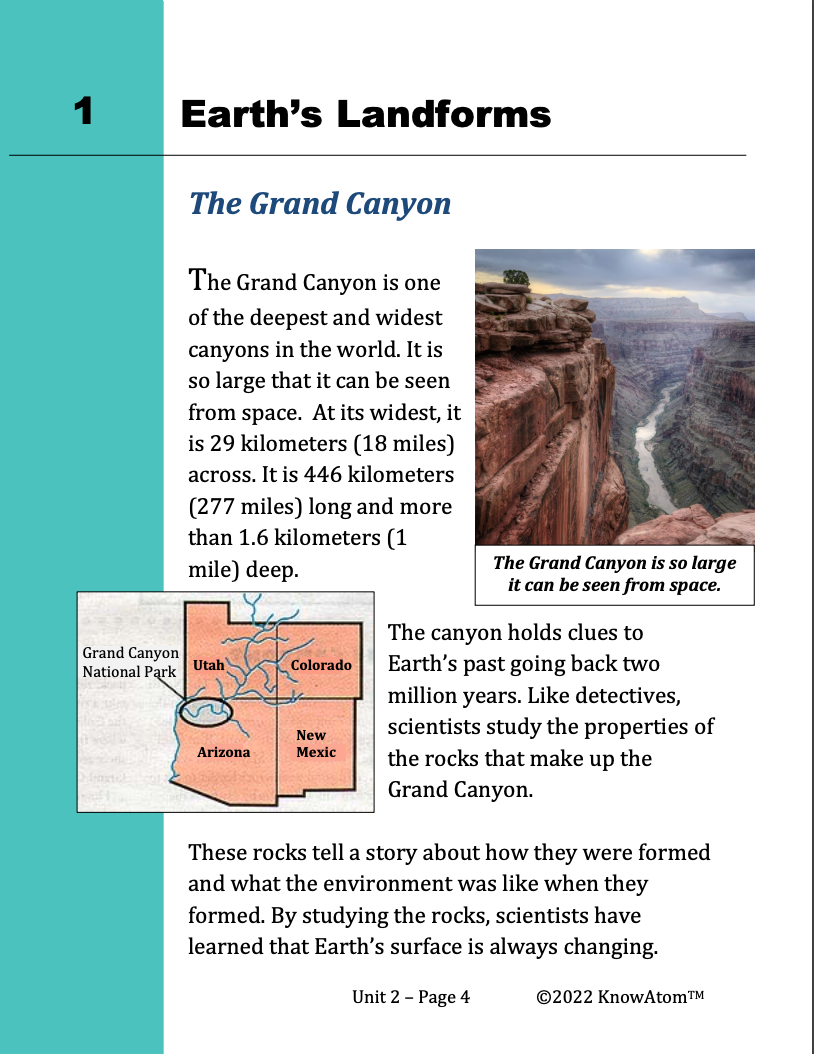
In this unit, students stimulate the movement of tectonic plates and analyze maps to observe how plate boundaries create patterns in Earth’s features. In this lesson, they build on that knowledge to observe the science phenomenon of how water erodes sediment. This page highlights key components of this lesson.
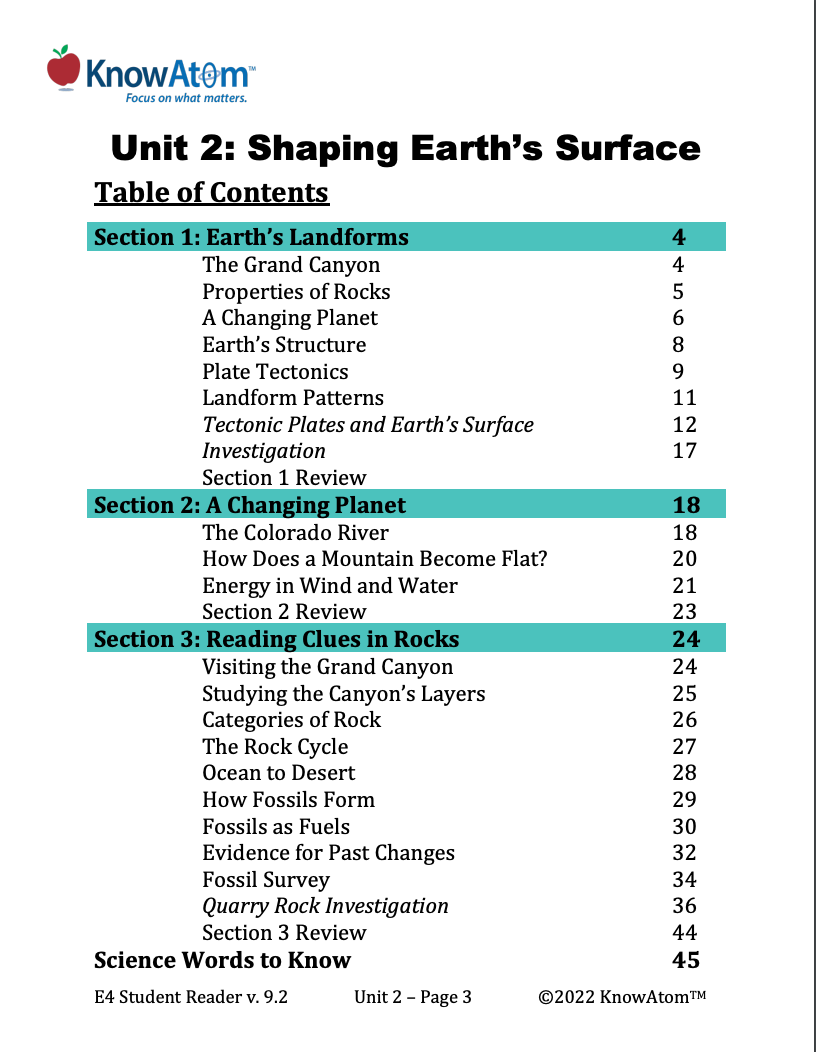
In this unit, students study Earth’s systems, analyzing the science phenomena of natural processes that shape Earth’s surface. In this lesson, students analyze clues in Earth’s rock to determine how Earth’s surface has changed over time. This page is a high-level extract of this lesson.
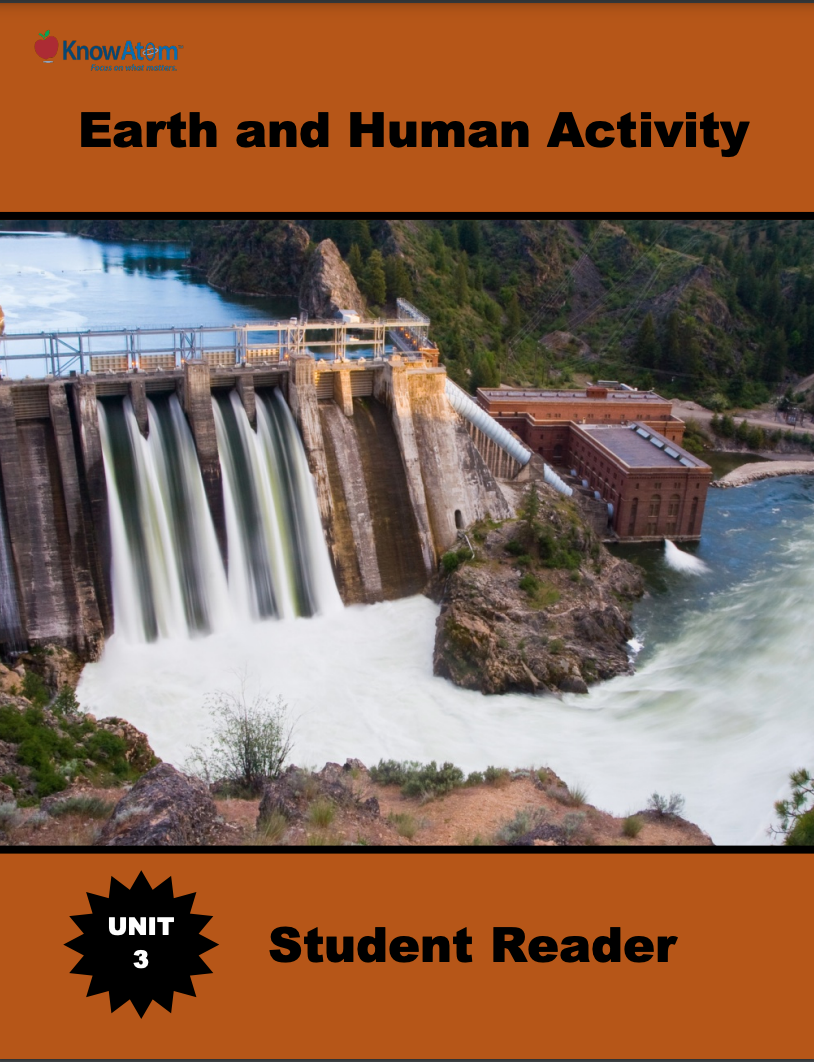
In this unit, students focus on the science phenomena of Earth’s interacting systems, evaluating how the hydrosphere and geosphere are shaped by one another. In the first lesson of the unit, students conduct an experiment to determine how the particle size of an Earth material affects its permeability to water. This page highlights key excerpts from the components of this lesson.
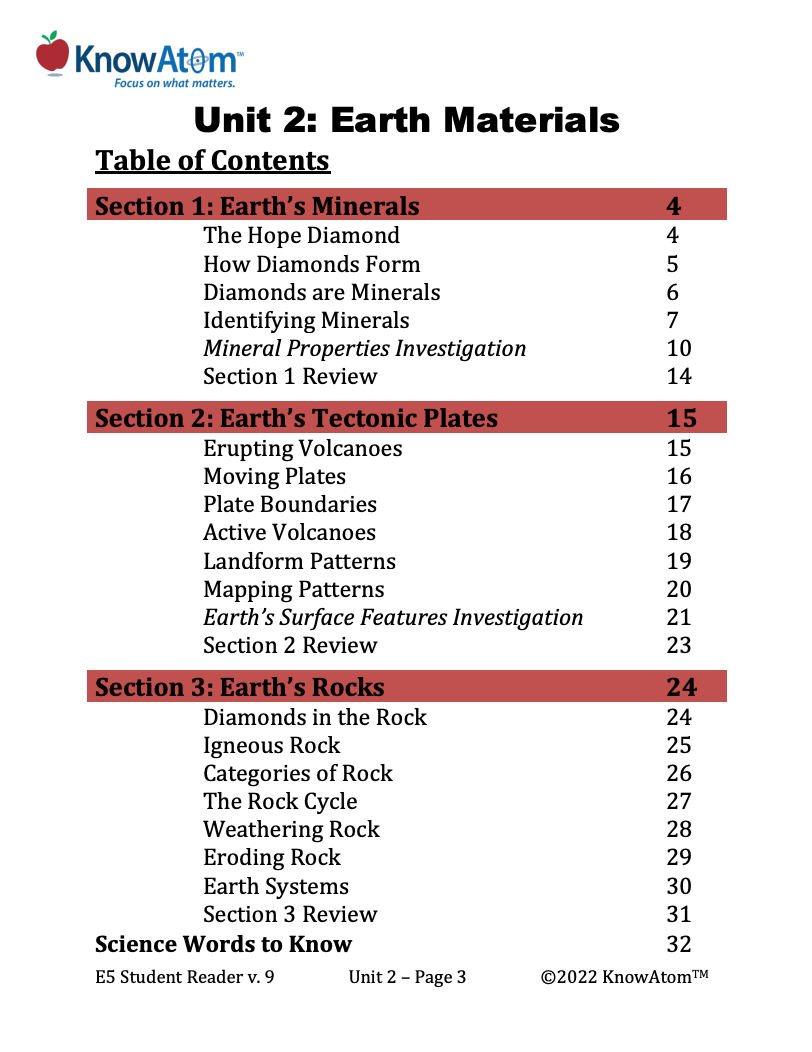
In this unit, students analyze the science phenomena of how elements make up minerals, which make up rocks. In this lesson, they explore geologic phenomena that cause Earth’s surface to change over time in predictable patterns. This page is an overview of this lesson.
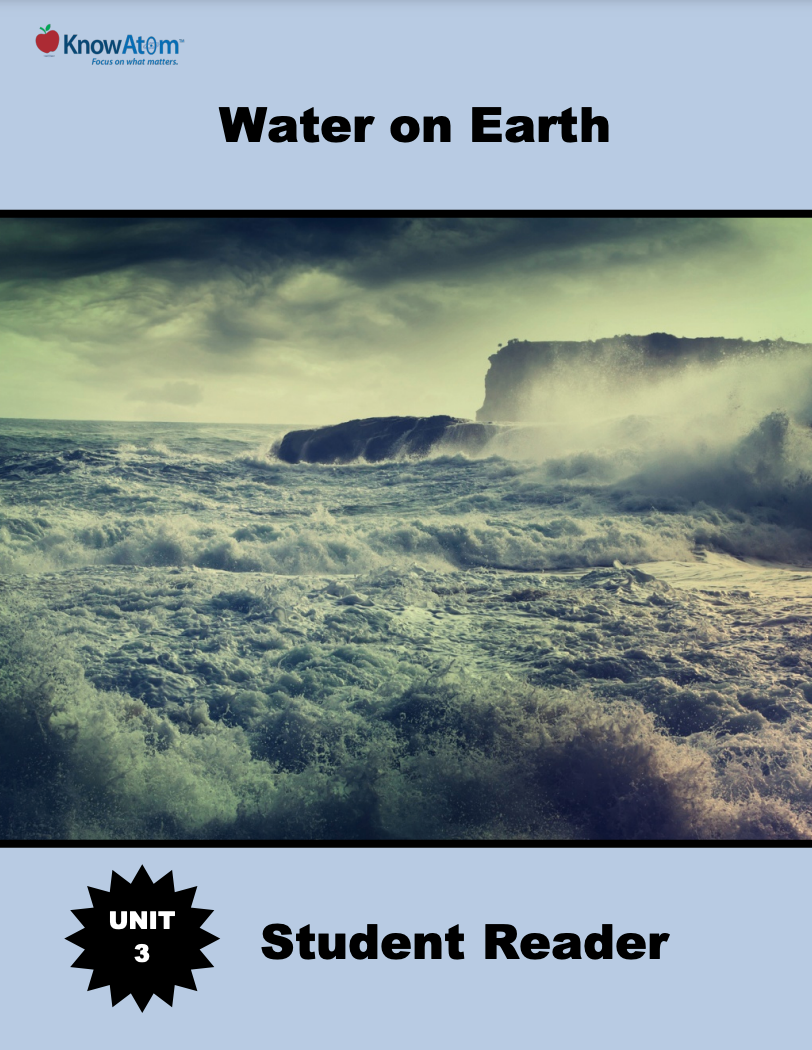
In this unit, students analyze the phenomena of Earth’s interacting systems, focusing on how the hydrosphere interacts with and is influenced by the other systems. In this lesson, students graph and model the distribution of fresh water and salt water on Earth and use a physical model to analyze how fresh water moves and becomes salty. This page showcases each section of this lesson.
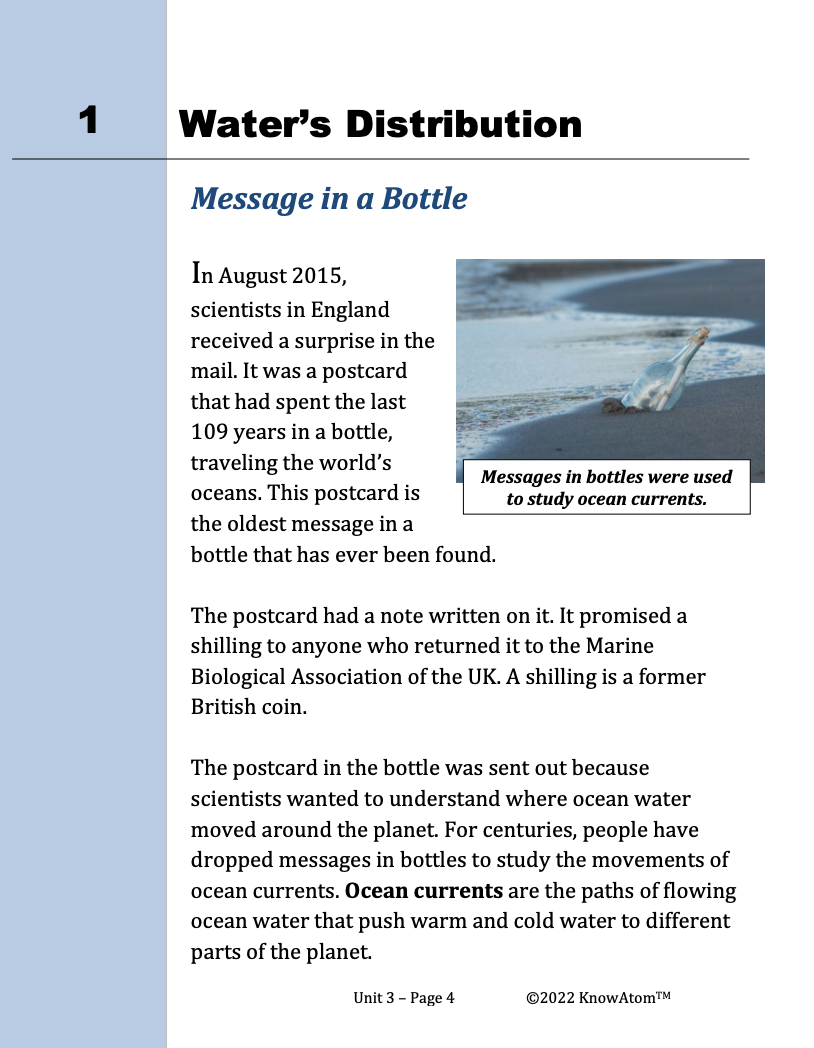
In this unit, students figure out phenomena of Earth’s interacting systems, focusing on how the hydrosphere interacts with and is influenced by the other systems. In this lesson, students apply their scientific knowledge of Earth’s water system to engineer water filtration devices to figure out how to reduce the impacts of water pollution on the environment. This page provides an overview of key aspects of this lesson.
Standards citation: NGSS Lead States. 2013. Next Generation Science Standards: For States, By States. Washington, DC: The National Academies Press. Neither WestEd nor the lead states and partners that developed the Next Generation Science Standards were involved in the production of this product, and do not endorse it.
